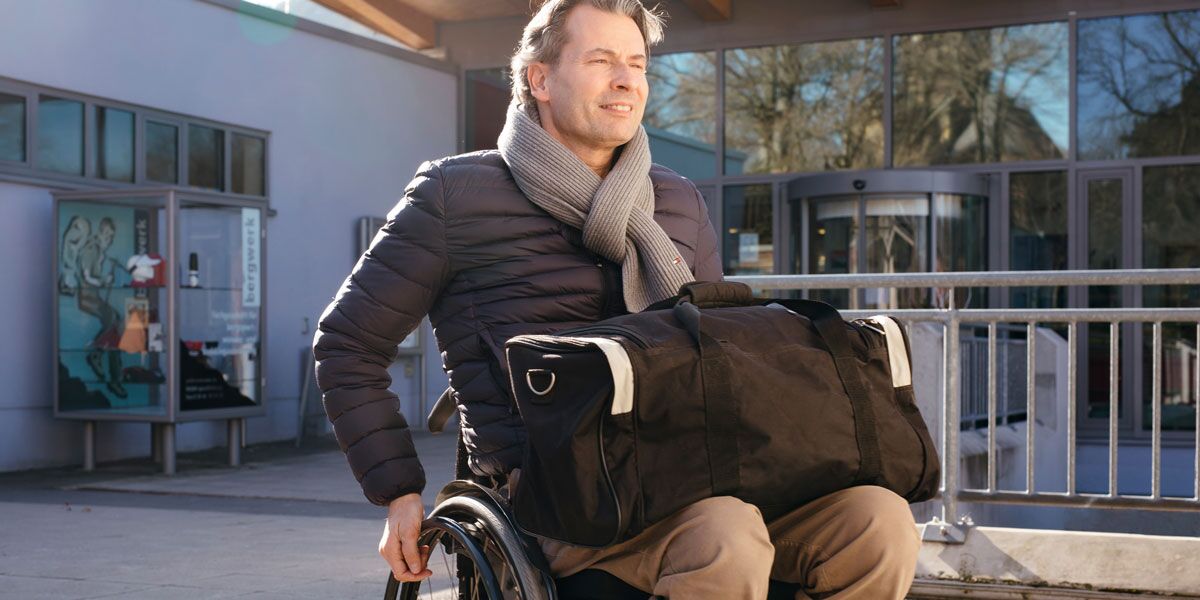Assistance for people with disabilities

In Germany, people with disabilities receive special benefits in addition to the general social benefits. These individual benefits are intended to enable people with disabilities to participate fully in social life. They should shape their lives according to their inclinations and abilities. Their interests and wishes are important in the design of the assistance.
In Germany, the range of assistance for people with disabilities is very extensive and covers a wide variety of areas of life. The services are divided into:
- Benefits for medical rehabilitation,
- benefits for participation in working life,
- benefits to ensure subsistence and supplementary benefits,
- benefits for participation in education and
- benefits for social participation.
In addition, severely disabled persons, i.e. persons with a registered degree of disability, receive special assistance.
IN GENERAL:
Normal signs of old age cannot be recognised as disabilities. The same applies to illnesses whose effects do not last longer than 6 months.
Further information on the various benefits for people with disabilities can be found on the web portal "einfach teilhaben" of the Federal Ministry of Labour and Social Affairs and in the "Ratgeber für Menschen mit Behinderungen" (Guide for people with disabilities) published by the BMAS.
GOOD TO KNOW:
If you are a new immigrant to Germany and have a disability yourself or a family member, you should seek personal counselling. Free counselling services especially for people with disabilities and their relatives on all questions of rehabilitation and participation can be found on the portal Fachstelle Teilhabeberatung (EUTB).
Here you can also use the search form to find the individual contact points for the services in Saxony-Anhalt.
In 2001, Saxony-Anhalt was the first federal state in eastern Germany to pass a Disability Equality Act. The aim of the law was to underpin and concretise the prohibition of discrimination and disadvantage for people with disabilities enshrined in the Basic Law through state law. For the first time in Germany, inclusion was enshrined, as was the obligation to provide reasonable accommodation for people with disabilities. This could be, for example, disability-friendly construction methods or acoustic signals at traffic lights.
Whereas previously only discrimination was comprehensively prohibited, this now already applies to disadvantage. In order to comprehensively take into account the interests and concerns of people with disabilities, the Equality Act was drafted by the target group itself. In the future, people with disabilities will be strengthened to receive equal education, to be able to take up jobs, to participate in social life without barriers and to live in families with equal rights.
In Saxony-Anhalt, support for persons with disabilities includes the following benefits according to the information portal of the Ministry of Social Affairs:
- Compensation for disadvantages (from degree of disability 25)
- Lump sum (e.g. for extraordinary medical expenses)
- Personal budget (for participation in social life)
- State blindness allowance (blind and deaf allowance)
According to the regulations of the law on severe disabilities, health impairments and their effects are determined upon application. Depending on the determination of disabilities and the identity card that may be issued, it may be possible to claim compensation for disadvantages. Questions and answers on the assessment procedure can be found on the information portal of the Saxony-Anhalt State Administration Office.
GOOD TO KNOW:
If you are a new immigrant to Germany and have a disability yourself or a family member, you should seek personal counselling. Free counselling services especially for people with disabilities and their relatives on all questions of rehabilitation and participation can be found on the portal Fachstelle Teilhabeberatung (EUTB).
Here you can also use the search form to find the individual contact points for the services in Saxony-Anhalt.